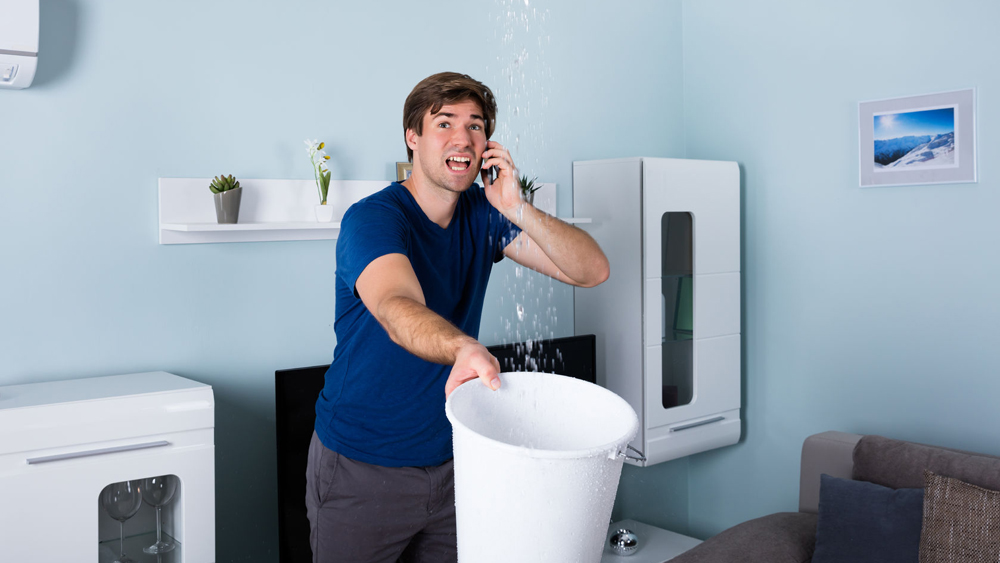6 Most Common Sources of Water Leaks in Your Home: How to Identify and Address Them
6 Most Common Sources of Water Leaks in Your Home: How to Identify and Address Them
Blog Article
This great article in the next paragraphs involving How Fast Water Damage Can Ruin Your Home is immensely motivating. Read on and draw your own personal assumptions.

Leakages not just trigger waste of water however can also cause unnecessary damages to your house and also advertise undesirable natural growth. By looking and understanding for day-to-day scenarios that trigger leakages, you can shield your house from future leaks and unnecessary damages.
Immediate temperature changes.
Severe temperature changes in our pipes can trigger them to broaden and also get suddenly. This development as well as tightening might cause fractures in the pipelines, particularly if the temperature are below freezing. If you maintained an eye on exactly how your plumbing functions, it would be best. The existence of the previously discussed scenarios regularly suggests a high threat.
Corroded water supply
This could be the reason of staining or bending on your water pipelines. If our plumbing system is old, take into consideration replacing the pipelines since they are at a greater risk of rust than the more recent versions.
Defective Pipe Joints
The point at which your pipes connect is often the weakest web link in the waterline. Pipe joints can deteriorate in time, causing water leakages. The majority of pipeline joints are not easily noticeable. If you have loud pipes that make ticking or banging sounds, specifically when the hot water is switched on, your pipeline joints are possibly under a great deal of pressure. It is a good idea to have your plumber inspect your system yearly.
Trespassing roots
A lot of water leakages start outside your house as opposed to inside it. If you notice an unexpected decrease in water stress, claim in your faucet, require time to go out and also analyze your yard. You could discover wet spots or sinkholes in your yard, which may suggest that tree origins are getting into water lines creating water to permeate out. You can have your plumber check for invasion, especially if you have trees or shrubs near your property.
Poor Water Connectors
At times, a leak can be created by loose pipes as well as pipelines that provide your home appliances. In case of a water links leak, you may observe water running straight from the supply line or pools around your home appliances.
Obstructed Drains
Blocked drains might be irritating as well as inconveniencing, but they can often wind up causing an overflow causing rupture pipelines. Keep eliminating any kind of materials that may drop your drains that can clog them to prevent such aggravations.
All the above are root causes of leaks but not all water leaks arise from plumbing leaks; some leakages could come from roof covering leaks. All leaks must be fixed quickly to avoid water damages.
Leaks not only trigger waste of water yet can also cause unnecessary damages to your home and promote unwanted organic development. By recognizing and looking for daily circumstances that create leakages, you can shield your home from future leaks and unnecessary damages. Today, we will certainly look at 6 leak causes that might be triggering your pipelines to leak.
At times, a leak can be triggered by loosened hoses and pipes that supply your appliances. In case of a water connections leak, you might notice water running straight from the supply line or puddles around your appliances.
How To Check For Water Leak In Your Home
How To Check for Leaks
The average household's leaks can account for nearly 10,000 gallons of water wasted every year and ten percent of homes have leaks that waste 90 gallons or more per day. Common types of leaks found in the home are worn toilet flappers, dripping faucets, and other leaking valves. These types of leaks are often easy to fix, requiring only a few tools and hardware that can pay for themselves in water savings. Fixing easily corrected household water leaks can save homeowners about 10 percent on their water bills.
To check for leaks in your home, you first need to determine whether you're wasting water and then identify the source of the leak. Here are some tips for finding leaks:
Take a look at your water usage during a colder month, such as January or February. If a family of four exceeds 12,000 gallons per month, there are serious leaks.
Check your water meter before and after a two-hour period when no water is being used. If the meter changes at all, you probably have a leak.
Identify toilet leaks by placing a drop of food coloring in the toilet tank. If any color shows up in the bowl after 10 minutes, you have a leak. (Be sure to flush immediately after the experiment to avoid staining the tank.)
Examine faucet gaskets and pipe fittings for any water on the outside of the pipe to check for surface leaks.
Undetected water leaks can happen without the home or business owner even realizing. If you suspect a water leak, but not able to find the source. It is time to contact a professional water leak detection service, The Leak Doctor.
How To Find a Water Leak In Your Home
https://www.leakdoctor.com/blog/How-To-Check-For-Water-Leak-In-Your-Home_AE197.html

As a fervent reader about Top Causes of Home Water Leaks, I imagined sharing that chunk was worth the trouble. Sharing is nice. You just don't know, you may be helping someone out. We cherish reading our article about How to detect water leaks in your home.
Schedule A Service Report this page